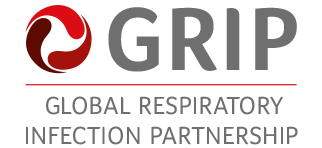The global challenge
Prof Essack presented data on the impact
of AMR. The O’Neil report, commissioned by
the UK Government and published in May
2016, concluded that if nothing is done,
by 2050 there will be 10 million deaths
attributed to AMR. This would cost the
world US$10 million; a modelling exercise
by the World Bank
predicted that
global GDP would be reduced by 1.1% in a
low AMR scenario and by almost 4% in a
high AMR scenario.
Due to the scale
of the potential impact, AMR is receiving
unprecedented political attention across
the globe. The pinnacle of the political
commitment was when AMR was addressed at
the UN General Assembly in September 2016.
The UN political declaration strongly
endorses the Global Action Plan that was
formulated by the tripartite alliance of
the World Health Organisation (WHO), the
Food and Agricultural Organisation of the
United Nations (FAO) and the World
Organisation for Animal Health (OIE).
In terms of the WHO approach, Prof Essack outlined the five principles underlining the Global Action Plan on AMR:
1. Whole-of-society engagement
2. Prevention first
3. Access not excess
4. Sustainability
5. Incremental targets for
implementation
These are supported by five strategic objectives:
1. Improve awareness and understanding
of AMR
2. Strengthen knowledge through
surveillance and research
3. Reduce the incidence of infection
through effective hygiene and infection
prevention and control (IPC)
4. Optimise the use of antimicrobial
medicines in human and animal
health
5. Ensure sustainable investment
through research &
development
To support each of these strategic
objectives, the WHO has been doing a
tremendous amount in terms of guidelines
and implementation. Alongside World
Antibiotic Awareness Week,
the WHO
Competency Framework on the education and
training of healthcare workers has just
been completed. Furthermore, the Global
Antimicrobial Surveillance Systems and the
Global Programme for the Surveillance of
Antimicrobial Consumption provide
different ways to monitor consumption. In
addition, the IPC section of WHO is
working to develop core infection control
programs, while the WHO list of essential
medicines was updated in 2017 to include a
section dedicated to AMR, flagging which
antibiotics should be made available and
which require monitoring in order to
measure any increase in resistance.
The FAO is another key member of the tripartite alliance. It has its own action plan on AMR that focuses on:
1. Improving awareness on AMR and
related threats
2. Developing capacity for surveillance
and monitoring of AMR and antimicrobial
use (AMU) in food &
agriculture
3. Strengthening governance related to
AMU and AMR in food and
agriculture
4. Promoting good practices in food and
agricultural systems and the prudent use
of antimicrobials
The third member of the alliance is the
World Organisation for Animal Health (OIE)
who have a strategy on AMR and the prudent
use of antimicrobials in animals. OIE
monitor the
consumption of use
stratified by terrestrial, aquatic food
and wild animals every year, using
information provided by individual
countries. This increases awareness and
understanding, strengthens the knowledge
base for surveillance and research,
encourages the implementation of
international standards and supports good
governance and capacity building. After
the UN political declaration, the
Inter-Agency Coordinating Group (IACG) on
AMR was formed. The purpose of this group
is to coordinate all actions taken at
global and regional levels and give
guidance on how to address AMR
comprehensively. Currently the IACG is
addressing AMR through 14 content areas
consolidated into three groups that are
intended to reduce the need for and
unintentional exposure to antimicrobials,
to optimise the use of medicines, and to
invest in innovation supply and access.
AMR is “a tragedy of the commons”. This is where individuals and groups act in self-interest to the detriment of the best interests of the whole of society by depleting a common resource, in this case antimicrobials. Antibiotic conservation requires coordinated, multi-pronged, multi-stakeholder, multidisciplinary partnerships underpinned by national and international policies that suspend sectoral interests for public good. This requires a One Health approach and the conscious decision to be unbiased and do the best that you can to conserveantibiotics for future generations.
